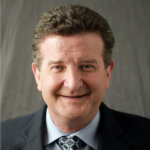Our travel is restricted right now due to the coronavirus, but our minds are not. Through John Feinstein’s new book, “Back Roads to March,” we are able to go on a journey to the inner-fabric of college basketball — where bus rides and gyms are the norm, not chartered flights and arenas.
“There is more to college basketball than ESPN and CBS and Dick Vitale screaming about diaper dandy’s,” said Feinstein.
“One thing I am proud of in this book, is I don’t think any kid I ever wrote about was ever called a ‘diaper dandy’ by Dick Vitale.”
The book’s complete title is “Back Roads to March: The Unsung, Unheralded and Unknown Heroes of a College Basketball Season,” but it might as well be called Feinstein’s love letter to the sport.
With wonderfully woven stories, Feinstein’s joy and passion for the college game jumps off the pages.
A plaque that is in Philadelphia’s famed Palestra, one of the true cathedrals of college basketball reads, “To win the game is great, to play the game the game is greater, but to love the game is the greatest of all,” and sums up Feinstein’s feelings and desire to write “Back Roads to March.”
“I have been a college hoops fan since I was kid in New York City,” Feinstein said.
“I love going to gyms. I walk in to the Final Four in a football stadium and say what is this, what are we doing here? I love more than anything writing stories and that, when people finish reading them they say ‘I didn’t know that.'”
We didn’t know until “Back Roads to March” that one of the architects of the biggest upset in NCAA Tournament history was a lawyer who gave up making close to $1 million a year to earn $32,000 as an assistant basketball coach.
Griff Aldrich was on head coach Ryan Odom’s UMBC staff in March 2018 when the Retrievers defeated Virginia to become the first number 16 seed to beat a number one seed in the NCAA Tournament.
Aldrich, who went to UVA law school and played in college at Hampden-Sydney with Odom, is now the head coach at Longwood University.
“There are 354 Division 1 basketball programs, television pays attention to about ten of them during the course of a year,” said Feinstein.
“Maybe when a Loyola of Chicago jumps up and makes the Final Four and all of sudden they notice that, or when UMBC beats Virginia — all of sudden TV knows what UMBC stands for.”
Feinstein then had plenty of stories. It was about where to go and when to go and how to tell them.
There are big names like Tubby Smith. He won a national championship at Kentucky, but is now coaching at his alma mater, High Point.
Smith told Feinstein coaching is coaching. The only difference now is, after 20 years of going to games on chartered airplanes, he is riding to games on chartered buses.
There are also poignant moments, such as a game at Howard University’s Burr Gymnasium which is only four miles from where Dr. Martin Luther King delivered his “I Have a Dream” speech.
Tommy Amaker, who grew up in Falls Church and starred at Duke, is now head coach at Harvard and he brought his Crimson to D.C. to play the Bison.
“One of the officials that day, Clarence Armstrong, walked over to me before the game and we looked around the packed gym and he said there is no place in basketball I would rather be today,” said Feinstein.
“Then they played the national anthem and then the black national anthem and the players from both teams stood during the anthems with their arms linked.”
“I get chills just thinking about that day, and in many ways, it was symbolic of why I loved doing this book so much.” said Feinstein.
In “Back Roads to March” it’s hard not to hear the cheers and feel the emotion of the players and coaches as they live out their dreams far from the national spotlight.
These hoop dreams are not about a ticket to the NBA — but college basketball raw-and-authentic. And through Feinstein’s words we are able to experience that.






